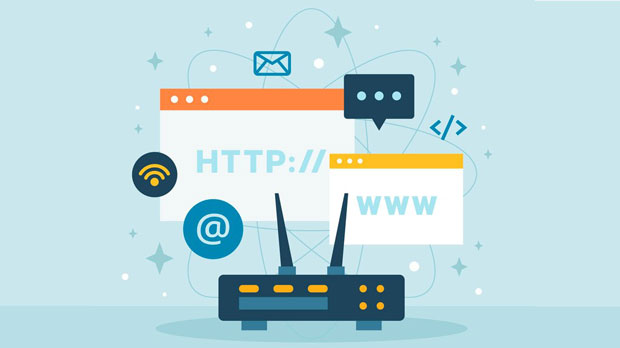In the world of proxy services, particularly residential proxies, users often seek flexibility in billing to align with their specific needs and usage patterns. One common question is whether it is possible to choose a pay-per-traffic model when purchasing residential proxies. Residential proxies are used to route internet traffic through real residential IP addresses, making them highly effective for activities such as web scraping, accessing geo-blocked content, and maintaining privacy online. With the increasing demand for cost-effective and scalable proxy solutions, it's crucial for customers to understand the different billing models available, including whether paying based on traffic usage is an option. In this article, we’ll delve into whether residential proxy providers offer traffic-based billing, how this model works, and why it may be advantageous for some users. Understanding Residential Proxies and Their Billing ModelsBefore we explore the possibility of pay-per-traffic billing, it's essential to understand the basic concept of residential proxies. Residential proxies are IP addresses assigned to real residential devices, providing a high level of anonymity compared to traditional datacenter proxies. These proxies are often used for tasks like web scraping, market research, social media automation, and overcoming geo-restrictions on streaming services.The most common billing models for residential proxies are:1. Data Plan: This is the standard billing method where users are charged based on the amount of data transferred, usually measured in gigabytes (GB) or terabytes (TB). Users buy a set amount of data for a specific period. 2. IP-based Plan: In this model, users are charged based on the number of IPs they need. The more IPs a user purchases, the higher the cost, regardless of traffic volume.3. Session-based Plan: Some proxy services charge based on the number of proxy sessions initiated, which could be hourly or daily, regardless of the traffic amount.Understanding these models is key to exploring whether pay-per-traffic billing exists, as it is a more nuanced way to pay based on actual usage.Can You Choose Pay-Per-Traffic When Buying Residential Proxies?The answer to this question largely depends on the proxy provider you choose. Most residential proxy services offer a data-based billing model, which is often seen as more predictable for both the user and the provider. However, as demand for more customizable and flexible solutions increases, some providers do offer pay-per-traffic models, though these may come with limitations.1. Traffic-Based Billing Model: Some advanced providers do offer a pay-per-traffic model where users are charged solely for the amount of data they consume. This option is highly beneficial for users who have irregular traffic usage or prefer to pay only for what they actually use, as opposed to committing to a fixed monthly or data-based plan. 2. Benefits of Pay-Per-Traffic Billing: The primary advantage of pay-per-traffic billing is its cost-efficiency. Users with fluctuating needs can avoid overpaying for unused data, making it an attractive option for occasional or low-volume proxy users. Additionally, this model provides flexibility, as users can scale their traffic consumption without being locked into specific plans or quotas.3. Limitations of Pay-Per-Traffic Billing: While this model may be ideal for some, it’s not universally available across all providers. Furthermore, even when available, pay-per-traffic billing may come with additional complexities such as variable pricing per gigabyte or data throttling after a certain limit. Additionally, some providers may restrict certain features like unlimited IP rotation or session control in their pay-per-traffic offerings.How Pay-Per-Traffic Billing WorksIf a provider offers a pay-per-traffic option, here's a breakdown of how it typically works:- Traffic Measurement: The user’s proxy usage is monitored and measured by the amount of data transferred during a session or over a period (daily, weekly, or monthly). Providers will generally track the traffic in megabytes (MB) or gigabytes (GB).- Variable Pricing: The pricing structure can be highly variable, depending on the provider. For instance, a user may be charged a flat fee per GB of data, or there may be a sliding scale, where the cost per GB decreases as the user consumes more data.- Billing Cycles: Providers offering pay-per-traffic plans usually have flexible billing cycles. While some might charge users weekly or monthly, others may offer a real-time or pay-as-you-go approach.- Data Limits and Caps: Many providers impose limits or caps on the amount of traffic that can be used before additional charges apply. This is something users need to be aware of, as exceeding the limit may result in extra costs.Advantages and Disadvantages of Pay-Per-Traffic ModelLet’s dive into the pros and cons of adopting a pay-per-traffic billing model for residential proxies.Advantages:- Cost Efficiency: For businesses or individuals with low, unpredictable traffic, this model can save significant costs. You only pay for what you use, which can reduce unnecessary expenditure.- Scalability: Since users pay only for the traffic they consume, this model allows for easy scaling. If traffic spikes temporarily, the costs will only reflect that increase.- Flexibility: The pay-per-traffic approach provides flexibility to users who don’t need a constant amount of proxy resources. This is ideal for intermittent usage, like conducting market research during specific events or scraping data from websites periodically.Disadvantages:- Unpredictable Costs: For high-volume users, the fluctuating nature of traffic-based pricing can result in unpredictable expenses. If the traffic load is not monitored effectively, this can lead to unforeseen costs.- Limited Availability: Not all proxy providers offer this model, and finding one that does might involve additional effort. Additionally, not every provider’s pay-per-traffic option will have the same features and performance guarantees as a traditional data-based plan.- Complex Pricing: With pay-per-traffic models, the pricing can be complex. Some providers may charge based on data throughput speeds, bandwidth limits, or peak usage hours, complicating the overall billing structure.Choosing the Right Billing Model for Your Proxy NeedsWhen deciding on the best billing model for residential proxies, it’s important to consider the following factors:- Usage Volume: If you know your traffic volume will be stable and high, a data or IP-based plan might be more predictable and cost-effective. However, for sporadic usage, the pay-per-traffic model is a better fit. - Budget Flexibility: If you have a tight budget and cannot commit to a large data plan upfront, a pay-per-traffic model allows you to scale your expenses based on actual usage.- Long-Term vs Short-Term Needs: For long-term, consistent use, data-based billing is usually more cost-effective in the long run. For short-term or one-off tasks, pay-per-traffic offers flexibility and lower upfront costs.ConclusionWhile not all residential proxy providers offer a pay-per-traffic billing model, it is available in certain cases, particularly with advanced and flexible services. This model offers several advantages, including cost efficiency and scalability, making it an appealing option for users with fluctuating traffic needs. However, it’s essential to weigh the pros and cons, considering factors like budget, usage volume, and provider availability. As with any service, understanding the specific terms and conditions of each billing option will ensure you make an informed decision and choose the model that best suits your proxy requirements.
Aug 15, 2025

































































